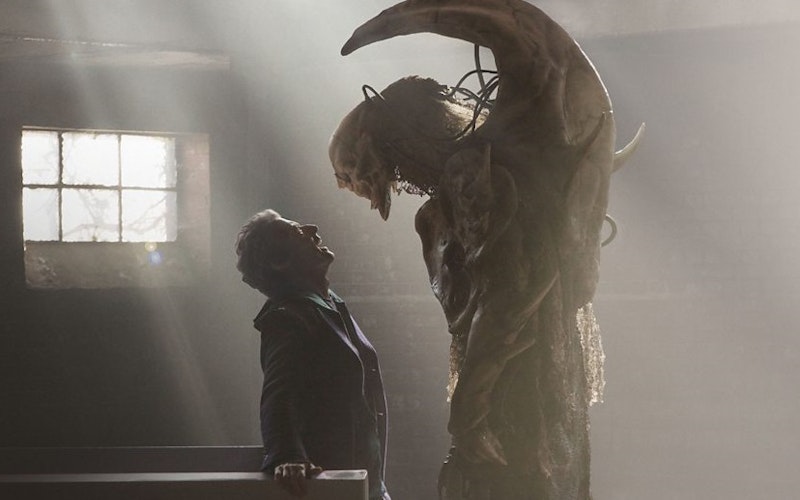
TV
Doctor Who and the Wildness of God
When at all possible, there are two things I do each Saturday: watch the Florida Gators play football and catch the latest episode of Doctor Who.
Over the last few years, Doctor Who has surged in popularity, particularly in the United States. People cannot get enough of the pacifist, time-traveling alien. Thanks to the show’s conceit of “regeneration,” whenever one actor quits the title role a new one steps in and the story continues on. New face, new personality, new quirks, but same character. Doctor Who combines the thrill of adventure with elements of science fiction, fantasy and even a bit of horror. I never expected to be a Whovian, yet here I am.
What keeps me coming back to Doctor Who is the way that it pushes and challenges me. This is a show that asks big questions without being pedantic. The Doctor always tries to see the best in others and always tries to find a way to choose life, even if it means offering a second or third chance to an arch-nemesis.
Still, the current, edgier Twelfth Doctor (Peter Capaldi) is somewhat utilitarian in his willingness to ignore the life of an individual for the sake of the “greater good,” prompting pushback from some of the characters with whom he interacts. In the fourth episode of season 9, “Before the Flood,” the Doctor is given a list of names. He begins to realize that the order of the names represents the order in which characters have died thus far. Despite his suspicion, he does little to prevent the next in line from being put in harm’s way, treating her death as an experiment to confirm his theory. Once convinced, he puts his plan into action to save the day. To the Doctor, the death of one seemingly unimportant character was a small price to pay for determining the truth. The Twelfth Doctor operates with an emotional detachment akin to the titular character in Sherlock (also produced by Doctor Who showrunner Steven Moffat).
The Doctor is a complex mix of love and judgment.
Despite his emotional distance, however, the Doctor remains a fundamentally good character. The pre-season trailers often feature a soundbite that captures the essence of the ensuing season. Before Season 8, it was the Doctor asking, “Am I a good man?” In season 9, it is an emphatic declaration: “I’m the Doctor and I save people.” The Doctor is a complex mix of love and judgment. The Doctor is committed to nonviolence and yet he is one of the most destructive forces in the universe. The Doctor is unfailingly committed to the protection and preservation of his friends, yet he’s often willing to see others as disposable, as is the case in “Before the Flood.” The Doctor is both a savior and a distinctly dangerous source of hope.
I once preached a sermon series on Habakkuk. In this short work, the prophet essentially puts God on trial and suggests that God is slacking on the job: “Why do you make me look at injustice? Why do you tolerate wrongdoing?” God’s response is shocking. Essentially, He simply says, “You think this is bad? Just wait.” Preparing this sermon forced me to confront my own expectations of God: the ways that I can put God in a box, how I can operate with a vision of a nice, tame God.
While the emotionally detached Doctor is certainly no stand-in for the Messiah, watching Doctor Who pushes and challenges me to consider my own expectations of God. Like the Doctor’s traveling companion, I trust absolutely in God’s love for me. Yet is my conception of God big enough to reconcile with the wildness of God?
When any character first steps into the Doctor’s time machine, the TARDIS, their observation is the same: “It’s bigger on the inside.” On the other side of an encounter with the grace of Jesus Christ, we find the same to be true of God. We find that God’s grace is bigger on the inside, large enough to cover all our sins. At the same time, we find that our Savior is no weak pushover, but the creator of the universe, the same God who speaks to Job from the storm: “Who is this that obscures my plans with words without knowledge? ... Where were you when I laid the earth’s foundation?” As we come to know God more, we come to know the God who is “bigger on the inside” — that dangerous source of hope who is our faithful Savior.
Topics: TV